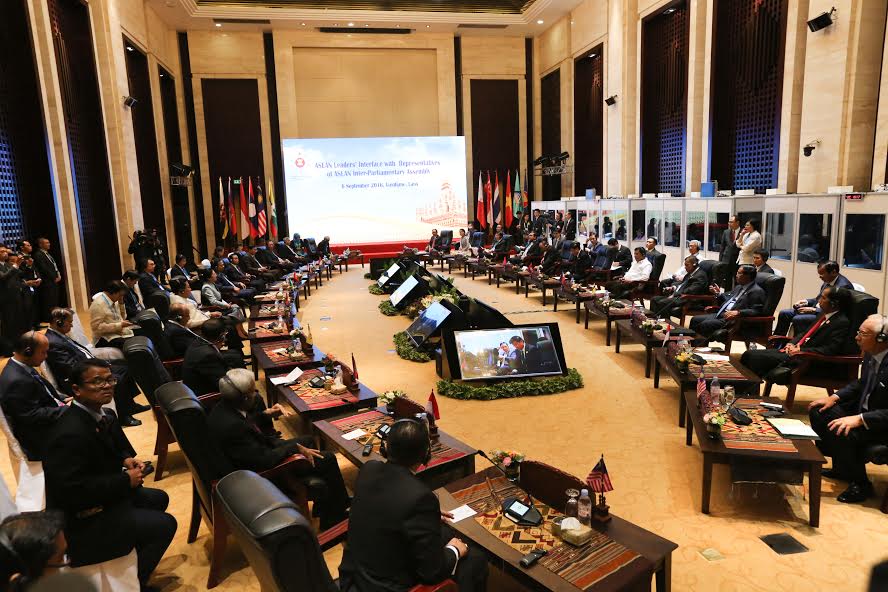EAS leaders intensify fight against human trafficking

President Rodrigo Roa Duterte joins other heads of states during the ASEAN Leaders’ Interface with representatives of ASEAN Inter-Parliamentary Assembly in Vientiane, Laos on September 6. KING RODRIGUEZ/PPD
LEADERS of Association of Southeast Asian Nations (Asean) reached out to dialogue partners in East Asia to intensify fight against human trafficking mostly people displaced by natural disasters including the Philippines.
At the East Asian Summit (EAS) held in Laos, the leaders said natural disasters and conflict push people to become vulnerable to trafficking, abuse and other forms of exploitation.
In particular, EAS leaders “noted the increase in the irregular movement of persons” and their concern for victims of trafficking facing unique barriers such as accessing help during a crisis, such as language barriers, isolation from social support, restrictions on mobility as well as lack of access to documentation and consular services.
The US Department of State has identified the Philippines as a source, transit and destination of victims of human trafficking. Last July, the US upgraded the Philippines to Tier 1 as it has become fully compliant to the global standards on measures to prevent trafficking in persons.
The US issues annual reports on country situation with tier placements signifying level of compliance with the US Victims of Trafficking and Violence Protection Act (TVPA) of 2000. Tier 1 (full compliance), Tier 2 (no full compliance but making significant efforts to comply with standards), Tier 2 Watchlist (no full compliance and absolute number of victims increasing), and Tier 3 (no full compliance, no significant efforts to comply).
EAS comprise 10 Asean member countries and dialogue partners-US, Russia, China, Australia, New Zealand, South Korea, Japan and India.
The EAS leaders also agreed to adopt the 2014 Protocol to the Forced Labor Convention of the International Labor Conference that seeks to look into human trafficking cases for sexual exploitation citing the growing international concern that requires urgent action.
Asean members have adopted ASEAN Convention Against Trafficking in Persons in November 2015 owing to the rising number of its nationals, mostly from Philippines, Indonesia, Cambodia who fall into human trafficking syndicates.
The EAS leaders agreed to step up “measures to identify victims of all forms of trafficking in persons, including among migrant flows and provide them with appropriate protection and assistance, in accordance with our respective international obligations and national law and policy.”
The EAS leaders also commit to apply principles of humanity and neutrality when responding to the needs of migrants caught in countries experiencing conflicts or natural disasters by giving them support and respecting their rights and dignity.
Experts view the lingering conflict in Mindanao, natural calamities and abject poverty force hundreds of thousands of Filipinos to fall trap into trafficking syndicates. Most of them end up in forced labor and sexual slavery in Asian capitals such as Malaysia and Singapore as well as Japan.